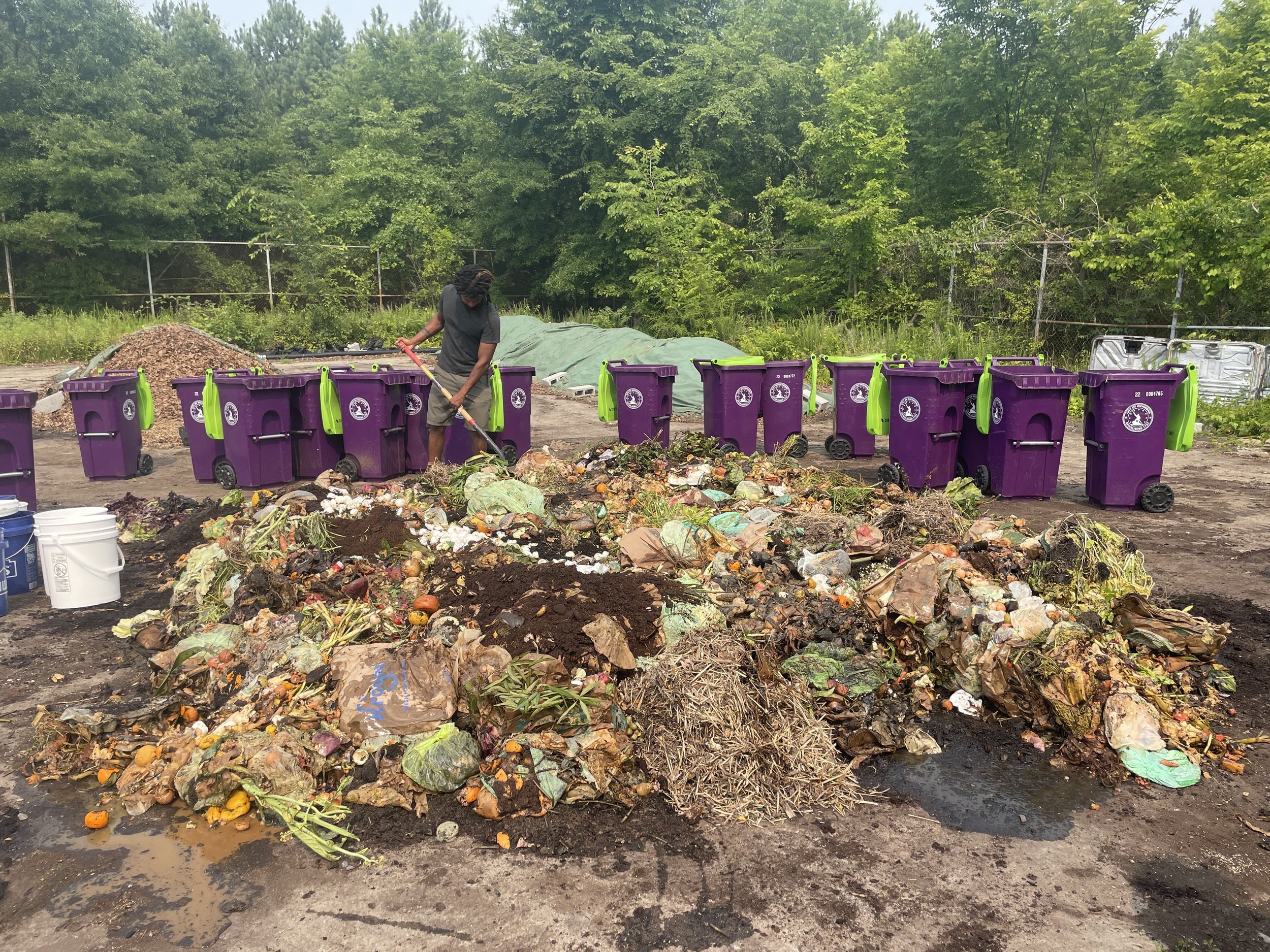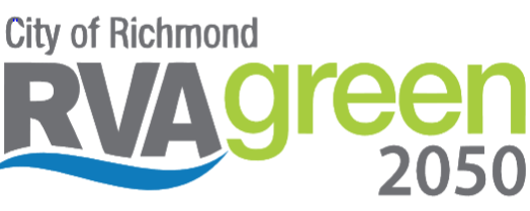
Waste Reduction and Recovery
With Richmond's landfill projected to reach capacity in just 15 years, reducing our waste is crucial to extend its lifespan and protect our local environment. By embracing waste reduction, we can conserve valuable resources, minimize pollution, and create a more sustainable future for Richmond.
Where to Start
-
The easiest ways to reduce landfill waste are to cut down on single-use items and recycle correctly. Start by using the City of Richmond Recycling Guide and pickup instructions to understand what and how to recycle locally. Beyond recycling, make simple swaps like bringing your own reusable bags for shopping and choosing reusable water bottles over disposable ones. Reducing what you use in the first place is a powerful step towards a less wasteful lifestyle.
-
Taking your commitment to waste reduction a step further involves embracing repair over replacement. Before purchasing something new, consider whether your old or broken item can be fixed. This not only saves you money but also significantly lowers your personal waste footprint by keeping valuable resources out of landfills. A fantastic resource for this is the Repair Cafe, a free or low-cost pop-up event where skilled volunteers offer guidance, tools, and tips for repairing your belongings. Attending a Repair Cafe can empower you with practical skills and connect you with a community focused on sustainability.
-
Taking waste reduction to an expert level often involves implementing practices like composting, a fantastic way to divert a significant portion of household waste from landfills. By transforming food scraps, yard waste, and even some paper products, you can create nutrient-rich compost, a valuable resource for your garden or indoor plants. For those unable to compost at home, the City of Richmond offers multiple convenient drop-off locations where you can 'donate' your organic waste to support local parks and green spaces, ensuring these valuable materials are still utilized beneficially.
A tour of the Richmond Compost Pilot facility.
Build your Toolbox
-
Mindful Purchasing: The "Pause and Ponder" Habit :
Before buying anything (except essential groceries or medications), institute a 24-hour (or even a 1-hour) "pause and ponder" rule. During this time, actively think about why you want the item, whether you truly need it, if you have something similar already, or if you could borrow it. "Where will this end up in a year?"
Avoiding Single-Use Items: The "Grab Your Reusables" Routine:
Create a "go-to" bag with your reusable shopping bags, water bottle, coffee cup, and cutlery. Keep it in your car, by the door, or in your regular bag so it's always accessible. Make it a habit to grab it before leaving the house. Practice politely declining single-use items when offered (e.g., "No straw, please," "I have my own bag, thank you").
Choosing Products with Minimal Packaging: The "Look and Compare" Strategy:
When shopping, actively look for products with the least amount of packaging or packaging that is clearly recyclable or compostable in Richmond. Compare different brands and opt for the more minimally packaged option.
Support Local: Shop at farmers' markets or local stores where products are often sold with less packaging. Bring your own containers when possible.
Borrowing and Renting: The "Community Connection" Approach:
Before buying something you'll only use occasionally, think about whether you can borrow it from a neighbor, friend, or family member. Explore local tool libraries or rental services for items like power tools or party supplies. Additionally get to know your neighbors – sharing resources can strengthen community bonds and reduce individual consumption.
Digital Alternatives: The "Go Paperless" Challenge:
Make a conscious effort to switch to digital alternatives for bills, newspapers, and communication. Unsubscribe from unwanted paper mail. Utilize note-taking apps and e-readers.
Reducing Food Waste: The "Plan, Store, Use" Method:
Create a weekly meal plan before grocery shopping and make a detailed shopping list to avoid impulse buys and food spoilage. Learn proper food storage techniques to extend the life of your groceries. Make it a habit to check your fridge and pantry before shopping and prioritize using leftovers. Get creative with repurposing ingredients.
-
Don't Trash Central Virginia
Plan RVA partners with localities in the Richmond region to promote litter prevention.
Virginia Dept of Environmental Quality
"Land & Waste"
DEQ supports efforts to reduce waste and increase recycling at Virginia state agencies and institutions. DEQ's Office of Pollution Prevention provides technical assistance to help agencies and institutions find opportunities for waste reduction and implement strong waste diversion programs at their facilities.
National Waste & Recycling Association
The Virginia Waste Industries Association
ASSIST members in understanding and responding to complex and rapidly changing legislative and regulatory requirements that affect their business through advocacy and information sharing
Food waste program partner
Litter Prevention
Empower your community to tackle litter issues head-on with our Cleanup Kits, designed to jumpstart your efforts in maintaining a cleaner environment. Additionally, KVBs Sustainability Sampler Kits provide practical alternatives to single-use plastics, making sustainable living accessible and manageable for all. Join KVB in making a difference, one swap at a time, as they strive towards a cleaner, more sustainable future for generations to come.
Virginia Dept of Environmental Quality
Waste Reduction
DEQ supports efforts to reduce waste and increase recycling at Virginia state agencies and institutions. DEQ's Office of Pollution Prevention provides technical assistance to help agencies and institutions find opportunities for waste reduction and implement strong waste diversion programs at their facilities.
Virginia Dept of Environmental Quality
Executive Order 17
(EO 17), was issued by Governor Glenn Youngkin on April 7, 2022. EO 17 seeks to increase awareness of the importance of recycling, reducing food waste, and encouraging the use of post-consumer recycled materials in manufacturing.
-
RVA zero waste initiative
We are a grassroots volunteer organization in Richmond Virginia (affectionately known as RVA) dedicated to the promotion of recycling, reuse, composting and source reduction with the ultimate goal of zero waste. Formed at the Sustainable RVA conference in fall of 2014, the initiative is part of the greater Sustainable RVA project.
City of Richmond - Department of Public Works
Trash Collection
The Department of Public Works collects and disposes of solid waste. Ninety routes, comprised of 65,000 residences and small businesses are serviced.
Electronics Recycling
CVWMA partners with the City of Richmond on programs for recycling and waste management, including curbside and drop-off recycling, electronics recycling and household hazard waste collections.
CREATIVE REUSE CENTER
They are a 501(c)(3) nonprofit organization whose mission is to inspire creative reuse and environmentally sustainable behavior by providing educational programs and affordable materials to the community.
Pop Up Stop is an annual clothing exchange focusing on educational and outreach programs dedicated to reducing the amount of unwanted clothing and textiles ending up in landfills or incineration. Based in Richmond, Virginia, we are dedicated to reducing textile waste within the city. We are encouraging and inviting surrounding areas to learn more about the environmental impacts of the textiles we wear and use every day
Household hazardous waste (HHW) is any material that can harm our environment when it’s not handled properly. Common examples of household hazardous waste include turpentine, fuel, coolant, batteries, pesticides, herbicides, cleaners, paints, and even electrical devices. Help eliminate environmental harm by reading warning labels and disposing of hazardous products properly. If you don’t, these household hazardous waste products can contaminate septic tanks, pollute the environment, and pose a threat to overall human health.
City of Richmond - Department of Public Works
Clean City Commission
The Richmond Clean City Commission is composed of City Council appointees and concerned volunteers who help clean and beautify Richmond. Their current program, "Pride in Richmond is Picking Up," includes Neighborhood Volunteer Clean-Ups, Graffiti Abatement, and Adopt-A-Spot.
-
Enrich Compost collection service
Encourage conscious waste choices to avoid overflowing landfills and air pollution. Instead, divert food and lawn scraps into compost with Enrich Compost. They collaborate with local businesses and Richmond residents committed to climate action and reducing their footprint.
After 2 months of service, subscribers qualify to receive compost. Members get a bucket of finished, ready to use compost once per year (in spring-summer months).
Virginia food scrap collection & composting services
Richmond Compost Initiative
The City of Richmond Department of Parks, Recreation and Community Facilities (PCRF) has been selected by the U.S. Department of Agriculture Natural Resources Conservation Service to receive a $90,000 grant to launch a community composting pilot program. The initiative seeks to divert food waste from the landfill by providing options for composting at convenient drop-off locations and cycle that organic waste into high-quality compost.
-
Item description
Residential Recycling program. Source
Sustainability Guide Resources









